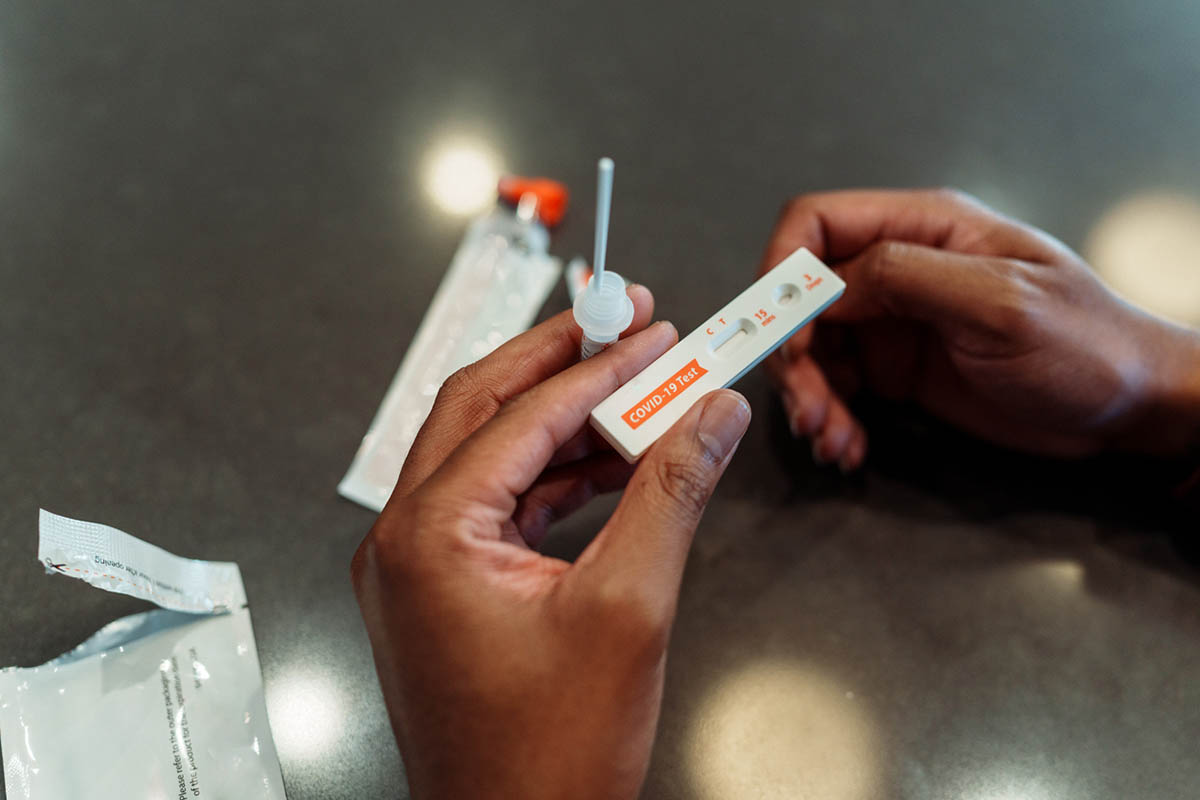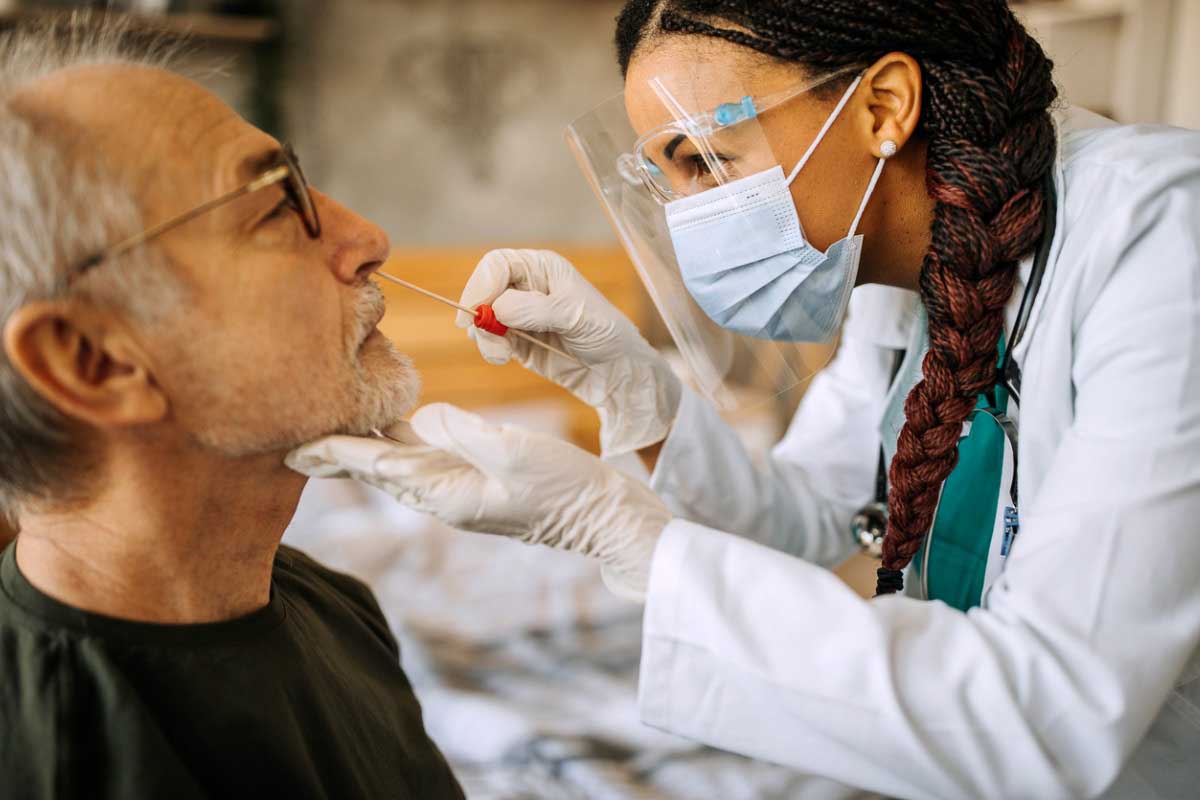
Acetyl-l-Carnitine and New-Onset Psychosis During the COVID-19 Pandemic
Complementary and alternative medicine as well as herbal medications have gained popularity and seen a resurgence of use in recent years.1 While many natural health products and dietary supplements purchased in pharmacies carry a perceived low risk to consumers, reports of adverse effects associated with the use of these products have increased public concern regarding their safety.2,3 The use and adverse effects of these substances, from St John’s wort to ginseng root, are pervasive in all areas of medicine and even more so in psychiatry.4,5 During the current coronavirus disease 2019 (COVID-19) pandemic, many theories and recommendations about the use of supplements have swept the public sphere.1 Some of these proposed immune boosters sold widely online contain acetyl-l-carnitine, which has been implicated in the dysregulation of the dopaminergic pathway.6 Previously, a case6 was reported of acetyl-l-carnitine precipitating psychosis in a patient with preexisting bipolar disorder. This is the first reported case, to our knowledge, of new-onset psychosis induced by acetyl-l-carnitine.
Case Report
A 56-year-old man with no prior psychiatric history or family history of psychiatric disorders presented to the inpatient unit due to paranoid delusions of drones following him. At admission, he was noted to have racing thoughts and a disorganized thought process comprised of paranoid delusions. He reported that he bought the cure to COVID-19 online and as such was being watched by the Central Intelligence Agency and followed by drones.
During hospitalization, underlying medical causes for his psychiatric condition were ruled out including results of the following laboratory tests: rapid plasma reagin, HIV, vitamin B12, folate, and urine drug screen. A computed tomography head scan showed no acute abnormalities.
His symptoms had started after a few days of taking a new supplement to improve his immune system and energy levels during the COVID-19 pandemic, which contains high doses of acetyl-l-carnitine along with ingredients of a multivitamin. However, the true ingredients could not be confirmed due to the product not being approved by the US Food and Drug Administration. Before using acetyl-l-carnitine, he was functional and running his own health-related business. He was successfully treated with risperidone and was eventually discharged home upon return to his baseline level of functioning.
Discussion
Acetyl-l-carnitine is an ester of carnitine, and carnitine supplementation has been shown to significantly increase levels of dopamine in the cortex, hippocampus, and striatum in rats.6,7 Carnitine is transported across the blood-brain barrier and plays an important role in mitochondrial energy metabolism, as it is a nutrient essential for the transport of long-chain fatty acids across the inner mitochondrial membrane.6
It is hypothesized that acetyl-l-carnitine has an effect on neurotransmitter production and is implicated in the dysregulation of the dopaminergic pathway.6,8 Animal studies6 have shown that persistent administration of acetyl-l-carnitine increases both dopamine and serotonin outflow in the nucleus accumbens. Therefore, chronic supplementation of acetyl-l-carnitine or dopamine-releasing drugs may lead to dopamine dysregulation resulting in psychosis.6 The same process may occur in humans, although some individuals may be more susceptible to the effects of such drugs secondary to genetic or environmental factors.9
We highly suspect that acetyl-l-carnitine was responsible for inducing this patient’s first psychotic episode, given the temporal association of the onset of psychosis with the use of the supplement. However, it is possible that the product contained unlisted ingredients that could have contributed to the psychotic episode. This case demonstrates the importance for health care providers to be informed about the effects of alternative medicine on mental health. A routine screen for such use can be extremely helpful in the diagnosis and treatment of psychiatric presentations.
Received: August 26, 2020.
Published online: December 3, 2020.
Potential conflicts of interest: None.
Funding/support: None.
Additional information: Information has been de-identified to protect anonymity.
REFERENCES
1.Nilashi M, Samad S, Yusuf SYM, et al. Can complementary and alternative medicines be beneficial in the treatment of COVID-19 through improving immune system function? J Infect Public Health. 2020;13(6):893-896. PubMed CrossRef
2.O’ Mathúna D. The best of both approaches: the role of science in complementary and alternative medicine. EMBO Rep. 2001;2(12):1054-1057. PubMed CrossRef
3.Bello N, Winit-Watjana W, Baqir W, et al. Disclosure and adverse effects of complementary and alternative medicine used by hospitalized patients in the North East of England. Pharm Pract (Granada). 2012;10(3):125-135. PubMed CrossRef
4.Paik DJ, Lee CH. Review of cases of patient risk associated with ginseng abuse and misuse. J Ginseng Res. 2015;39(2):89-93. PubMed CrossRef
5.Apaydin EA, Maher AR, Shanman R, et al. A systematic review of St. John’s wort for major depressive disorder. Syst Rev. 2016;5(1):148. PubMed CrossRef
6.Evcimen H, Mania I, Mathews M, et al. Psychosis precipitated by acetyl-l-carnitine in a patient with bipolar disorder. Prim Care Companion J Clin Psychiatry. 2007;9(1):71-72. PubMed CrossRef
7.Ferreira GC, McKenna MC. L-carnitine and acetyl-L-carnitine roles and neuroprotection in developing brain. Neurochem Res. 2017;42(6):1661-1675. PubMed CrossRef
8.Berman AE, Chan WY, Brennan AM, et al. N-acetylcysteine prevents loss of dopaminergic neurons in the EAAC1−/− mouse. Ann Neurol. 2011;69(3):509-520. PubMed CrossRef
9.Howes OD, McDonald C, Cannon M, et al. Pathways to schizophrenia: the impact of environmental factors. Int J Neuropsychopharmacol. 2004;7(suppl 1):S7-S13. PubMed CrossRef
aDepartment of Psychiatry, Central Michigan University, Saginaw, Michigan
*Corresponding author: Zaira Khalid, MD, 1000 Houghton Ave, Saginaw, MI 48602 ([email protected]).
Prim Care Companion CNS Disord 2020;22(6):20l02804
To cite: Dhir S, Khalid Z, Salcedo J, et al. Acetyl-l-carnitine and new-onset psychosis during the COVID-19 pandemic. Prim Care Companion CNS Disord. 2020;22(6):20l02804.
To share: https://doi.org/10.4088/PCC.20l02804
© Copyright 2020 Physicians Postgraduate Press, Inc.
Enjoy this premium PDF as part of your membership benefits!





